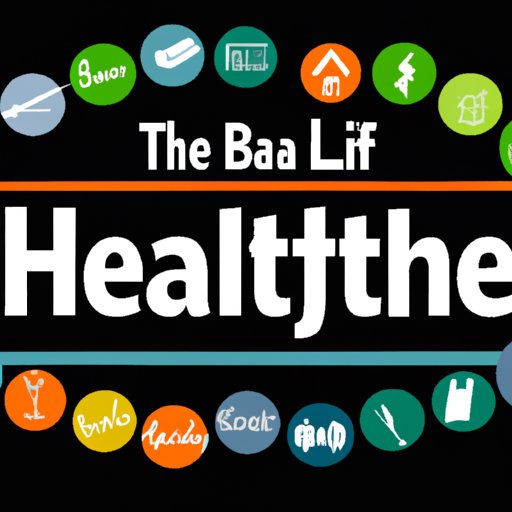
Introduction
Health education refers to the process of imparting knowledge and skills related to issues that impact our physical, mental, and emotional health. The aim of health education is to enable individuals to make informed decisions about their health and to inspire them to take ownership of their well-being. The importance of this topic cannot be overstated, as being healthy is a fundamental part of leading a fulfilling life. In this article, we will delve into the significance of health education and how it can be instrumental in building healthier communities and individuals.
The Importance of Health Education: Why it Goes Beyond the Classroom
Health education provides individuals with the necessary tools to make informed decisions about their health and well-being. While it is a critical component of classroom instruction, the impact of health education extends beyond the school walls. By providing individuals with the knowledge and skills necessary to make healthy choices, health education can inspire lifelong learning and positively impact all aspects of daily life.

Healthy Habits for Life: How Health Education Can Help You Thrive
Healthy habits are essential for good health and well-being. Health education can make it easier to form these habits and is a crucial ingredient in maintaining good health over time. Through programs that focus on physical activity, healthy eating, and strategies to manage stress, health education teaches students how to form healthy habits that can have a positive impact on their physical, emotional, and social health.
The Link Between Education and Health: Exploring the Benefits of Health Education
Health education and academic performance are intertwined. Students who have access to health education programs are more likely to perform better academically. Additionally, health education can help students develop important skills such as critical thinking, decision making, and problem-solving. These skills can extend beyond the classroom to help students make better choices in all areas of their life.
Promoting Wellness: Why Health Education Must be a Priority in Schools
Schools are uniquely positioned to promote wellness and serve as primary centers of healthcare for students and families. Health education provides students with the skills necessary to make informed choices about their health, prevent disease, and manage chronic conditions. By prioritizing health education in schools, we can create healthier communities, improve academic performance, and reduce healthcare costs.
The Power of Knowledge: How Health Education Can Empower Individuals to Take Control of their Health
Knowledge is power, and health education provides individuals with the knowledge and skills necessary to take control of their health. By providing individuals with access to information about healthy lifestyles, disease prevention, and self-care strategies, health education empowers individuals to make informed decisions about their health. This type of education allows individuals to become active participants in their healthcare, leading to better outcomes, and improving overall health and wellbeing.
Prevention is Key: How Health Education Can Help Identify and Reduce Health Risks
Prevention is an essential aspect of maintaining good health. By identifying health risks early on, individuals can take proactive steps to prevent the onset of chronic diseases and improve overall health outcomes. Health education can provide individuals with the knowledge necessary to prevent diseases and implement healthy lifestyle choices, such as physical activity, healthy eating, and stress management techniques. This type of education can help individuals reduce the risk of chronic diseases and improve their long-term health outcomes.
Investing in Health Education: The Long-Term Benefits for Communities, Families, and Individuals
Investing in health education can yield significant long-term benefits. By promoting healthier lifestyles and reducing healthcare costs, investment in health education can help create healthier communities. Additionally, by providing students with the necessary tools to make informed health decisions, investment in health education can improve academic performance. For families and individuals, investing in health education means access to reliable information, support, and resources, leading to improved health outcomes, and better quality of life.
Conclusion
In conclusion, health education plays a vital role in guiding individuals towards healthier lifestyles. By providing them with knowledge and skills necessary to make informed health decisions, health education can positively impact all areas of daily life. From promoting healthy habits to reducing health risks, investing in health education can yield significant long-term benefits for communities, families, and individuals. Through prioritization of health education, we can build healthier, happier, and more fulfilling lives for ourselves and those around us.




